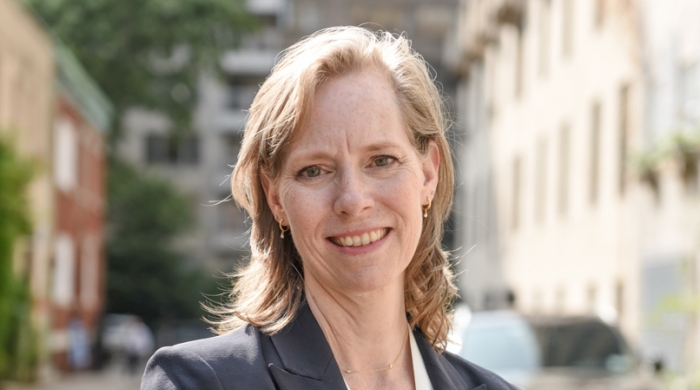James Kemple, senior fellow and research professor of teaching and learning, recently stepped down after 15 years as the executive director for NYU Steinhardt's Research Alliance for New York City Schools.
Learn more about his tenure, how the Research Alliance has changed, and what’s on the horizon for the future.
How was the Research Alliance started?
Kemple: “In the mid 2000s, the New York City public schools were undergoing some pretty dramatic changes and reforms led by a shift to mayoral control over the school systems. Schools gained more autonomy over spending and hiring, and a huge emphasis was placed on accountability, particularly on measurable outcomes like test scores and graduation rates. There was great concern about the lack of evidence as to whether these reforms were making a difference and to whom.

This led the community to coalesce around the creation of an independent, non-partisan organization who’d be charged with the mission of conducting research on questions that mattered to the key stakeholders in the New York City educational system. NYU Steinhardt stepped up and offered to host the Research Alliance; the chancellor of New York City Public Schools offered us access to their data and the opportunity to conduct research for and in the schools; and I was recruited to become the founding executive director in 2008.”
What are some of the ways in which the Research Alliance has changed over the last 15 years?
Kemple: “I see two dimensions of the Research Alliance’s development over the years. The first has to do with structural adaptations, chief of which is the way in which we collect, process, and manage our data. We have a data use agreement with the New York Department of Education (DOE) and the City University of New York (CUNY), and over the years we have built our own data management system that is distinct across the country in its size, its depth, and its quality. It follows students from the moment they enter the public school system to the moment they exit, and we can examine the data in a vast number of ways. In addition, we have changed our outlook on the role of communications. We now see communications as much more than “disseminating findings.” Instead, we view this work as a continuous process that begins even before a study is fully conceived and actively incorporates key stakeholders who will both inform and be informed by the research.
“The second facet of our development is the substance of our work and how we’ve carved out our niche as a source of evidence on the questions that matter. From the closing of low-performing schools to initiatives that support young men of color or computer science education in schools, the Research Alliance takes a hard-nosed look at the impact not just on the system itself, but especially in terms of disparities in opportunities and outcomes based on race, ethnicity, language, economic status, and so forth. This focus on effectiveness and equity allows us to provide evidence that is truly informative.”
What are some of your most memorable moments over your tenure?
Kemple: “The most meaningful aspect has been the privilege of working with such spectacular colleagues at the Research Alliance, NYU, the DOE, and CUNY over the last 15 years. These collaborations have been the circumstances in which I’ve learned the most about how we do the work and the implication it has for the future of our educational system.”
What do you see in the future for the Research Alliance?
Kemple: “We’ve more recently started to take an even deeper look at educational equity, and I see new Executive Director Cheri Fancsali’s commitment to equity as a centering and driving principle of what the Research Alliance will study, and what will make us a leader in that field. Equity is not just whether students come out of the educational system with similar outcomes, but are they being provided with opportunities that are commensurate with their level of need.”
Learn more about Fancsali's vision for the future of the Research Alliance.
What does the future look like for you?
Kemple: “I’m really looking forward to continuing my work at the Research Alliance by shifting my attention to helping shore up and refine our data management system in ways that make it more useful for our staff and other researchers around the City and the country who want to contribute to decision-making. For a lot of my career, I’ve focused on how we prepare young people to enter the world of work, how they form their understanding of the workplace and how they think about careers. I’m looking forward to continuing to do research on New York City’s career and technical educational system and new initiatives on pathways to economic security.”
Related Articles
NYU Steinhardt’s Jim Kemple Seeks to Promote Equity as SREE President
The Society for Research on Educational Effectiveness (SREE) annual conference, “From Reckoning to Racial Justice,” was held in September and focused on equity and inclusiveness in education research.
Dr. Cheri Fancsali Named New Executive Director of the Research Alliance for New York City Schools
In 2023, Cheri Fancsali assumed leadership of the Research Alliance, bringing with her a wealth of experience in education research, and a strong focus on helping educators and policymakers use evidence to serve students more effectively.
Research Alliance Launches New Studies Focused on CS Education
The Research Alliance is pleased to announce several new projects that complement and build on our ongoing study of NYC’s CS4All initiative.




